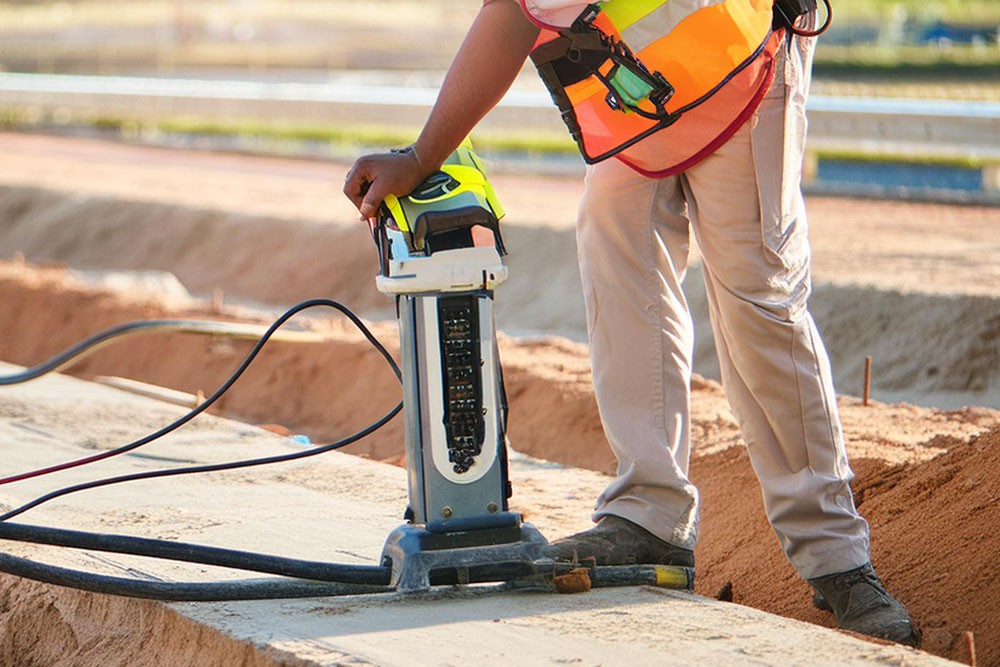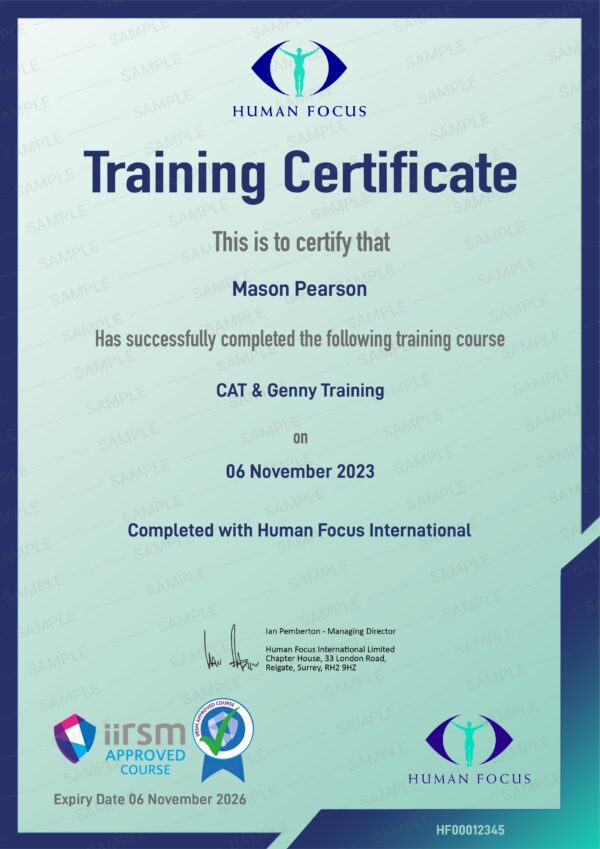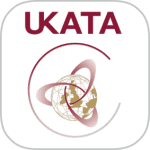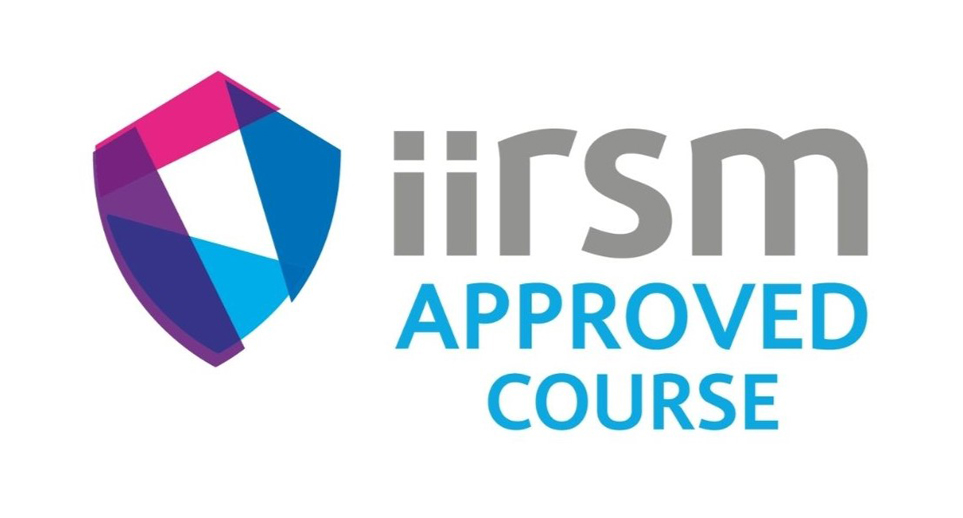Equip operatives with the expertise to correctly use the Cable Avoidance Tool (CAT) and Signal Generator (Genny). This CAT and Genny training programme covers the fundamentals of CAT and Genny and provides step-by-step instructions on how to use these tools to locate and avoid underground utilities. By taking this IIRSM-approved course, users gain practical knowledge to prevent danger from underground services in line with HSG47.
CAT and Genny Training
Course Duration: Approximately 2 hour
Course Preview
Course Details
| Course Duration | Approximately 2 hours |
|---|---|
| Approval body | IIRSM |
| Format | Fully online |
| Assessment | Multiple choice |
| Certification | Same-day digital certificate |
| Certificate Valid For | 3 years |
Suitable For
Course Content
This course contains the following modules:
Provides users with an understanding of the fundamentals of CAT and Genny equipment.
- Understanding CAT and Genny Equipment
- Why CAT and Genny are Necessary
- Legal Background
- CAT Models & Components
- Genny Components & Accessories
- CAT Software
Teaches users effective ways to operate CAT and Genny tools, as well as how to prepare for excavation.
- Documentation
- Locating Utilities
- CAT Pre-Use Checks
- Selecting the CAT Operating Mode
- Reading the CAT Display
- Operating Your CAT
- Marking Utilities
- Genny Pre-Use Checks
- Genny Capabilities
- Operating Your Genny & Accessories
Walks users through what using CAT and Genny equipment actually looks like.
- Doing pre-use checks on CAT and Genny
- Scanning Excavation Area & Marking
- Locating Utilities with a Genny
What You Will Learn
Available in 13 Languages
Course Approval Body
The course certificate includes:
- User name
- Company name
- Course name
- Completion date
- Expiry date
- Approval body
An IIRSM-approved certificate will be available for download and printing instantly upon course completion.
Users must complete an assessment before earning their certificate.
The end-of-course test is:
- Fully online
- Multiple choice
A score of 80% is required to pass.
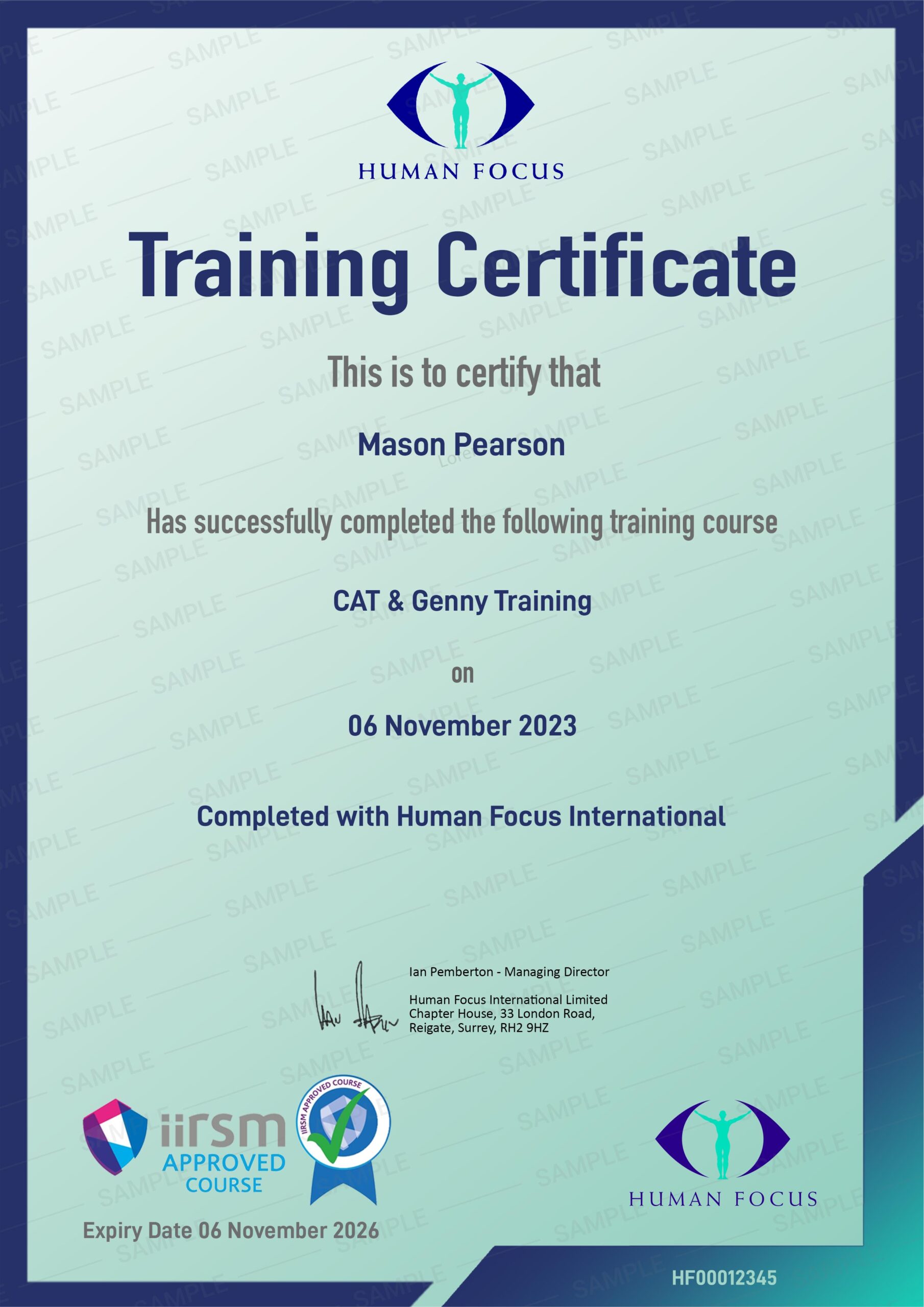
Customer Feedback
Why is CAT and Genny Training Important?
Locating underground services, such as electricity cables and gas pipelines, during excavation work is crucial not only for the health and safety of operatives but also to prevent costly disruptions.
To avoid underground service strikes during ground-breaking activities, operators and supervisors must be fully trained in using CAT and Genny equipment. These tools work together to detect signals emitted from hidden pipes and cables.
This course provides practical solutions with detailed instructions on CAT and Genny operation, enabling users to locate and avoid underground services. The knowledge gained ensures a safer work environment and compliance with legal standards.
Are You Aware of Your Responsibilities?
Employers have a duty to ensure the safety of their workforce and the public when undertaking excavation projects. This includes conducting thorough checks for underground utilities using appropriate equipment like CAT and Genny. Key responsibilities include:
- Conducting risk assessments and implementing safety measures
- Providing adequate training on CAT and Genny usage
- Ensuring CAT and Genny scans are conducted before any excavation work
- Regularly maintaining and inspecting CAT and Genny equipment
These responsibilities are reinforced by several key legislation, including:
- Health and Safety at Work Act 1974 (HSWA)
- Management of Health and Safety at Work Regulations 1999 (MHSWR)
- Provision and Use of Work Equipment Regulations 1998 (PUWER)
- Construction (Design and Management) Regulations 2015 (CDM)
- Electricity at Work Regulations 1989 (EWR)
- Reporting of Injuries, Diseases and Dangerous Occurrences Regulations 2013 (RIDDOR)
Failure to fulfil these responsibilities can result in severe legal consequences, financial penalties and increased risk of accidents.
Our course helps employers meet these responsibilities by providing staff with comprehensive training on the effective use of CAT and Genny, supporting compliance with relevant legislation.
Designed for operatives and supervisors involved in excavation operations, this training programme teaches users how to effectively use CAT and Genny to mark and avoid underground utilities. The comprehensive course covers the fundamental aspects of CAT and Genny equipment, including their components, functions, legal background and the complete process of operating these tools.
By the end of this training, users will be equipped with the necessary knowledge and skills to use these tools effectively, minimising risks and enhancing project outcomes.
Frequently Asked Questions
CAT stands for Cable Avoidance Tool, a device used to detect buried cables and pipes. Genny stands for Signal Generator, which works in conjunction with the CAT to locate underground utilities by emitting a signal that the CAT can detect.
CAT and Genny detect various underground utilities, including electricity cables, gas pipelines, water mains, sewage pipes, telecommunications cables (including fibre optics), internet cables, stormwater drains, oil pipelines, district heating pipes and cable television lines.
While CAT can detect passive signals from some utilities, Genny enhances detection by emitting a specific signal that CAT can pick up, allowing it to locate utilities that may not be detectable otherwise. This combination helps prevent damage during excavation work and ensures safety and project efficiency.
This course is ideal for organisations overseeing excavation work, including construction companies, utility workers and any personnel responsible for ground-breaking activities.
According to HSE guidelines, a CAT and Genny scan must be conducted before starting any excavation work, and the law mandates proper precautions for locating/marking cables. Therefore, if your employees will be performing excavation work, it’s crucial that they obtain CAT and Genny qualifications.
CAT and Genny training helps improve operatives’ and supervisors’ awareness of how to avoid damaging underground utilities and operate in a safe, efficient and cost-effective manner. It enhances safety, supports regulatory compliance and prevents costly damage
